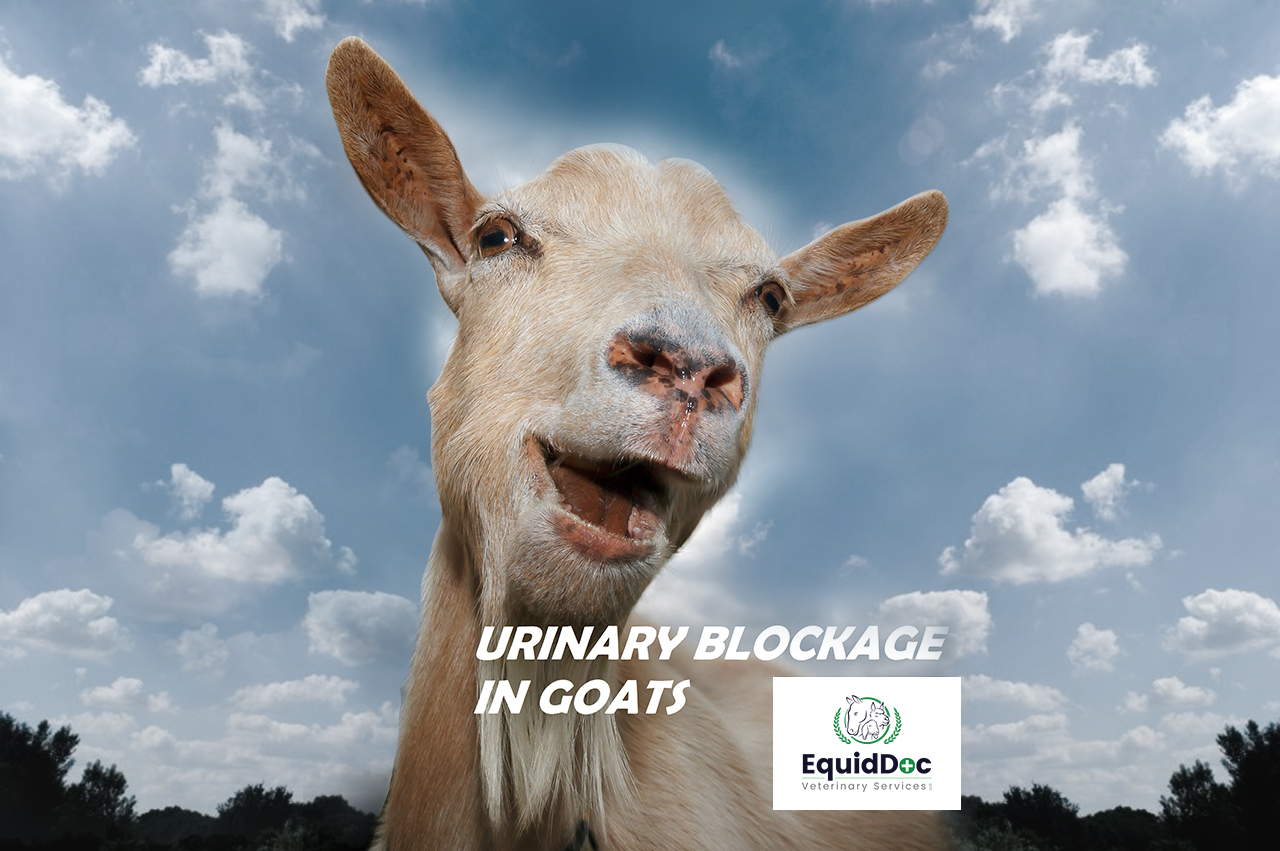Urinary tract obstruction from uroliths, or urinary tract stones, is an all too common disease in male goats and sheep. Uroliths are formed from excessive mineral deposits in the urine. Male goats that are castrated young may be anatomically predisposed to blockage due to abnormal urethral development. Other factors that may contribute to stone development include changes in urine pH, water intake, urinary tract infections, vitamin and mineral deficiency, and hormone elevations. Urolithiasis (forming urinary stones) is most common in goats fed high grain & low hay diets due to abnormal electrolytes and decreased saliva production. Some breeds of sheep may also be genetically predisposed to urolithiasis.
Urinary tract disease can be tough to spot due to the subtle signs and the difficulty monitoring urinary habits in your herd. Signs of urinary obstruction or blockage may include: your goat acting vaguely “off”, decreased appetite, or more obviously hunching, grinding teeth, vocalizing, straining to urinate, or blood in the urine. Goats are notorious for hiding illness and often don’t show how sick they are until they are very sick. If you suspect any discomfort, monitor urinary output carefully and call EquidDoc. If the urinary obstruction does occur, there are certain tests and treatment options that may be performed on farm, on a case-by-case basis. Prognosis is poor if your goat is seriously blocked and surgery in a hospital is often necessary.
Also Read: Top 3 Reasons to Microchip Your Horse (Or Goat or Alpaca)
Due to poor prognosis, once a urinary obstruction has occurred, steps should be taken to prevent the formation of stones. Castration should be delayed in young male goats to allow more normal development of the urethra. Provide plenty of fresh water (goats are surprisingly picky about their water source!), an appropriate free-choice goat mineral, good quality grass hay, and avoid feeding alfalfa and grain concentrates unless absolutely necessary. If grain must be fed or you have an at-risk goat, monthly administration of medicine to acidify the urine is recommended. Speak with your EquidDoc veterinarian to discuss your specific animal and herd needs. Call 508-885-4205 to schedule your consultation today.

